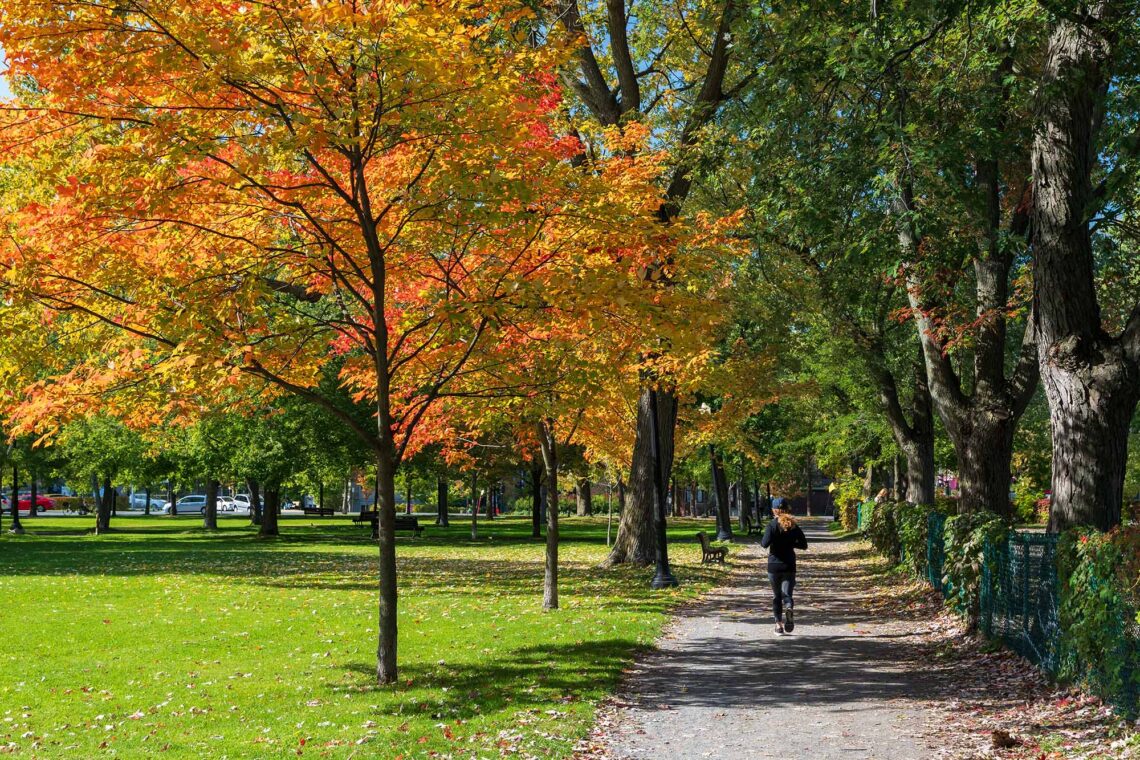City life is a whirlwind of excitement, opportunity, and chaos. Whether you’re a student stepping into a bustling metropolis for the first time or a young professional chasing dreams in a concrete jungle, the fast-paced urban environment can feel overwhelming. I remember my first week in New York City—horns blaring, strangers rushing past, and the subway map looking like a plate of spaghetti. It was thrilling but disorienting. If you’re nodding along, don’t worry—you’re not alone. This article is your survival guide, packed with practical, actionable tips to help you navigate city life with confidence. From mastering public transit to finding peace in the urban chaos, these nine tips will ensure you don’t just survive but thrive.
Why City Life Can Be Overwhelming
Cities pulse with energy, but that vibrancy comes with challenges. Crowded streets, sky-high rent, and constant noise can test even the most resilient soul. Understanding these hurdles is the first step to conquering them. Let’s dive into nine proven strategies to make city living manageable and even enjoyable.
Tip 1: Master Public Transportation
Public transit is the lifeblood of any city. Whether it’s subways, buses, or trams, learning the system saves time, money, and sanity. My first attempt at navigating Chicago’s L train was a comedy of errors—I ended up in the wrong borough, late for a meeting, and cursing my phone’s GPS. Don’t be me.
- Get a transit app: Apps like Citymapper or Google Maps provide real-time schedules and routes. They’re lifesavers when you’re rushing to class or a job interview.
- Invest in a transit pass: Most cities offer weekly or monthly passes that are cheaper than single rides. For example, New York’s MetroCard or London’s Oyster card can save you a bundle.
- Learn the rush hour: Avoid peak times (usually 7–9 AM and 5–7 PM) to dodge crowded trains and buses.
Tip 2: Budget Like a Pro
City living is expensive—rent, food, and even coffee can drain your wallet. A friend once blew half her paycheck on a single week of takeout in San Francisco. Budgeting is your shield against financial stress.
- Track your spending: Use apps like Mint or YNAB to monitor where your money goes. You’ll be shocked at how much those $5 lattes add up.
- Cook at home: Eating out is tempting, but meal prepping can save hundreds monthly. Check out budget-friendly recipes on sites like Budget Bytes.
- Hunt for deals: Websites like Groupon or local city blogs often list discounts on restaurants, events, and services.
Pros and Cons of Budgeting Apps
| App | Pros | Cons |
|---|---|---|
| Mint | Free, syncs with bank accounts | Ads can be intrusive |
| YNAB | Great for long-term planning | Subscription fee ($14.99/month) |
| PocketGuard | Simple interface, tracks small expenses | Limited features in free version |
Tip 3: Find Your Community
Cities can feel lonely despite the crowds. Building a network of friends or like-minded people makes all the difference. When I moved to Boston, joining a local book club helped me find friends who became my urban family.
- Join local groups: Platforms like Meetup list events for everything from hiking to coding. Pick one that sparks your interest.
- Attend community events: Check your city’s website or local universities for free festivals, workshops, or lectures.
- Volunteer: Giving back connects you with others while making a difference. Sites like VolunteerMatch can point you to opportunities.
Tip 4: Embrace the Art of Navigation
Cities are mazes of streets, alleys, and skyscrapers. Getting lost is part of the adventure, but knowing your way around builds confidence. I once wandered into a sketchy part of Los Angeles at midnight—lesson learned: always plan your route.
- Use offline maps: Download city maps on Google Maps for times when Wi-Fi or data fails you.
- Learn landmarks: Iconic buildings or statues are easier to remember than street names. In Paris, I used the Eiffel Tower as my North Star.
- Ask locals: They know shortcuts and hidden gems better than any app.
Tip 5: Prioritize Your Mental Health
The city’s constant buzz can fray your nerves. Stress, anxiety, and burnout are real, especially when you’re juggling work, studies, or a social life. I hit a low point during my first winter in Seattle, feeling isolated amid the gray skies.
- Practice mindfulness: Apps like Headspace offer quick meditation sessions to calm your mind.
- Find green spaces: Parks like Central Park in NYC or Hyde Park in London are oases of calm. A 2020 study from Aarhus University found that spending 20 minutes in nature reduces stress hormones significantly.
- Seek support: Many cities offer free or low-cost counseling through community centers or universities. Check Psychology Today for local therapists.
Tip 6: Stay Safe in the Urban Jungle
Safety is a top concern in any city. While most urban areas are safe, staying vigilant is key. I learned this the hard way when my phone was pickpocketed in a crowded Madrid market.
- Travel in groups at night: There’s safety in numbers, especially in unfamiliar areas.
- Know emergency numbers: In the U.S., it’s 911; in the UK, 999; in Europe, 112. Save them in your phone.
- Trust your instincts: If a street or situation feels off, find another route.
Safety Comparison: City vs. Suburbs
| Aspect | City | Suburbs |
|---|---|---|
| Crime Rates | Higher in some areas, varies widely | Generally lower |
| Public Transport | Extensive, but can be crowded | Limited, car-dependent |
| Nightlife Safety | Requires caution, stick to busy areas | Safer, less foot traffic |
Tip 7: Optimize Your Living Space
City apartments are often tiny and pricey. Making the most of your space is crucial. My first Chicago studio was the size of a shoebox, but clever organization turned it into a cozy home.
- Use multi-purpose furniture: A sofa bed or foldable desk saves space. Check IKEA for affordable options.
- Declutter regularly: Donate or sell items you don’t need. Apps like OfferUp make this easy.
- Add personal touches: Plants or artwork can make a small space feel like yours without breaking the bank.
Tip 8: Explore Affordable Entertainment
Cities are packed with things to do, but fun doesn’t have to mean expensive. I discovered free museum days in Washington, D.C., that kept me entertained for weeks.
- Find free events: Websites like Eventbrite list free concerts, art shows, and more.
- Use student discounts: If you’re a student, flash your ID for deals on movies, museums, or transit. UNiDAYS is a great resource.
- Explore on foot: Walking tours are often free or tip-based and let you discover your city’s hidden gems.
Tip 9: Stay Organized and Time-Savvy
City life demands juggling multiple responsibilities—classes, work, socializing, and errands. Without a plan, you’ll burn out. I once missed a deadline because I overscheduled myself during a hectic week in Miami.
- Use a planner: Digital tools like Google Calendar or physical planners keep you on track.
- Batch tasks: Group errands like grocery shopping and laundry to save time.
- Set boundaries: Learn to say no to non-essential commitments to protect your time and energy.
People Also Ask (PAA)
Here are answers to common questions about surviving city life, sourced from Google’s PAA section:
How do you survive in a city?
Surviving in a city requires adaptability, resourcefulness, and planning. Master public transit, budget wisely, and build a support network to feel at home. Prioritize safety and mental health to handle the urban pace.
What are the challenges of living in a city?
Challenges include high costs, noise, crowded spaces, and potential isolation. Traffic and safety concerns can also be issues. However, cities offer unparalleled opportunities for growth, culture, and connection if you navigate these hurdles smartly.
How can I save money in a city?
Save money by cooking at home, using public transit, and seeking free or discounted events. Budgeting apps and group deals can help stretch your dollars further.
Where can I find community in a city?
Join local clubs, volunteer, or attend community events to meet people. Platforms like Meetup or university groups are great starting points for building connections.
FAQ Section
Q1: What’s the best way to get around a city without a car?
A: Public transportation is your best bet—subways, buses, or bikes are affordable and efficient. Apps like Citymapper provide real-time routes, and transit passes save money. Walking is also great for short distances and exploring.
Q2: How do I deal with city noise and stress?
A: Invest in noise-canceling headphones or earplugs for sleep. Practice mindfulness with apps like Calm, and visit parks for a break from the chaos. Regular exercise also helps manage stress.
Q3: Are cities safe for newcomers?
A: Most cities are safe if you stay aware of your surroundings. Stick to well-lit areas at night, travel in groups, and know local emergency numbers. Research safer neighborhoods before moving.
Q4: How can I make friends in a big city?
A: Join local groups via Meetup, attend community events, or volunteer. Universities and coworking spaces often host mixers. Be open to small talk—it can lead to lasting friendships.
Q5: What are the best tools for budgeting in a city?
A: Apps like Mint, YNAB, or PocketGuard help track expenses. Websites like NerdWallet offer budgeting tips tailored to urban living. Local deal sites like Groupon can also save you money.
Conclusion: Thrive, Don’t Just Survive
City life is a wild ride, but with the right tools, it’s an adventure you can conquer. From mastering the subway to finding your tribe, these nine tips are your roadmap to thriving in the urban jungle. My first year in a city taught me that resilience and resourcefulness turn challenges into opportunities. So, lace up your shoes, charge your transit card, and dive into the chaos—you’ve got this.





